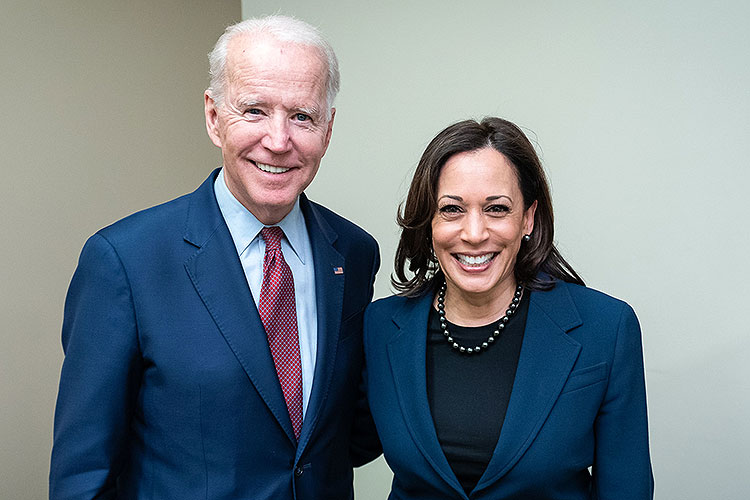University of Wisconsin-Madison student, Benjamin Rothove, and University of North Dakota pupil, Avery Durfee, took legal action against the current administration, represented by President Biden and Vice President Harris, on Wednesday. They claim their denial for a specific scholarship opportunity is based on their white ethnicity, concluding it to be discriminative and illegal. They proposed the lawsuit with the support of the Wisconsin Institute for Law and Liberty (WILL), and the Young America’s Foundation. This case involves their alleged unjust exemption from the Ronald E. McNair Postbaccalaureate Achievement Program, valued at $60 million and administered by the Department of Education.
The contention of discrimination pivots on the premise that the Ronald E. McNair’s program violates the constitutional rights of Asian, white, Jewish, and Arab students, curtailing their opportunities for equal representation. The program’s criterion stipulates eligibility for those from ‘underrepresented’ groups in postgraduate education or towards low-income students who are first-time college attendees. It’s these conditions that have incited this lawsuit, as Rothove and Durfee contest their right for consideration.
Launched in the U.S. District Court for the District of North Dakota, the lawsuit calls for a judicial halt to enforce any race-based eligibility requirements under the Biden administration. It also appeals for a declaration to all relevant institutions stating that such stipulations are, in their view, a contravention of constitutional values. This suit may prove substantial in altering the landscape of college scholarship allocations, potentially underscoring the importance of maintaining equal rights across all student demographics.
The core context of the lawsuit emerges from emails both Rothove and Durfee received from their respective universities. These communicated their inability to apply for the McNair scholarship explicitly due to their racial identity. Their complaint furthers the argument against race-based eligibility, emphasizing the necessity for equality in college—regardless of a student’s racial or ethnic background.
The aspiration behind this case, according to WILL’s deputy counsel Dan Lennington, extends beyond getting justice for Rothove and Durfee. It’s about establishing a newfound precedent ensuring equity in college student treatment, devoid of racial preferences or biases. He laid emphasis on this goal during a conversation with The Daily Wire, stating, ‘There can’t be any differing treatment of the student based on race. There can’t be any privileges given or advantages or benefits at all.’
They view the case as a counterpunch against what’s perceived as an expanding push towards Diversity, Equity, and Inclusion (DEI) initiatives by the Biden-Harris administration. According to Lennington, and those supporting the plaintiffs, this angle of action can be seen as a broad attack, raising the stakes for the case and its potential repercussions for future educational policies.
The McNair program, under focus here, offers substantial financial aid and academic support to its recipients. It assists students via internships, mentoring endeavors, and research activities, thereby significantly bolstering their overall academic prowess. However, as per current stipulations, only low-income white and Asian students may qualify for the scholarship, presenting a contrast with the eligibility of black and Hispanic students, where no such financial barriers exist.
The federal definition of an ‘underrepresented group’ encompasses black, Hispanic, American Indian, Alaskan Native, Native Hawaiians, and Native American Pacific Islanders for graduate programs. This classification, the plaintiffs argue, places students who aren’t black or Hispanic in an inevitably undesirable position, effectively communicating their reduced necessity in the realm of graduate education.
Upon sharing his perspective, Avery Durfee voiced his discontent, saying, ‘I’ve worked unbelievably hard throughout my undergraduate career and have wanted to go to graduate school my entire life.’ His statement, released to The Daily Wire, underscores his frustration, ‘Being told that I didn’t qualify for the McNair program because I’m white seemed completely wrong. This sends the wrong message to young Americans everywhere.’
Scott Walker, current Young America’s Foundation President and a former governor of Wisconsin, explained their participation in this legal challenge. He expressed his pride in standing firm on behalf of students who believe they’re being judged more extensively on their race rather than their merit and potential. From his perspective, denying a student an opportunity to compete for a scholarship based on their racial identity is not just demeaning and discriminatory, but also potentially unconstitutional.
Dan Lennington put forth a pertinent query while discussing this lawsuit with The Daily Wire, pointing towards several other race-based programs established within the federal government. He argued that these programs need to be scrutinized in the wake of the Supreme Court’s decision to overturn affirmative action. The outcome of this query could open a Pandora’s Box of potential changes to other similarly functioning programs.
His statement, ‘We are going to sue over [the programs] one at a time,’ reflects an unwavering determination to challenge these government-sponsored initiatives. The WILL associates and those involved in the lawsuit see this as a significant step towards ensuring equity, even if it needs to be achieved ‘brick by brick.’
Overall, the lawsuit adds another layer to the ongoing dialogue surrounding race-based allocations in government-sponsored scholarship schemes. The discussion hinges on the balance between advocating for diversity and maintaining equality of opportunity among students from all racial backgrounds.
The resolution of the lawsuit could create a wave of change in the federal educational policies. It might instigate a wider evaluation of affirmative action strategies and race-based decisions across the board in scholarship and educational aid programs.
Regardless of the outcome, the discourse triggered by this lawsuit provides an opportunity for a detailed analysis of the concept of ‘underrepresented groups’ and how it’s applied in academic circles. Its implications influence not only those immediately affected but also future generations of students looking for fair chances in their educational journeys.
In conclusion, Rothove and Durfee’s lawsuit symbolizes the quest for balance in the complex relationship between promoting diversity and ensuring equal opportunity in education, thus demonstrating the ongoing reinterpretation of equality in the United States.


